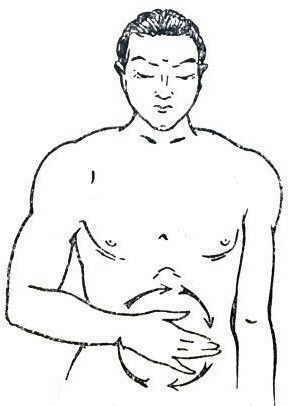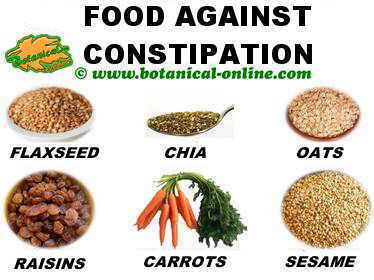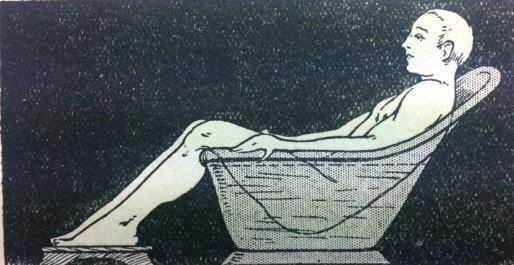Contents
- 1 What is constipation?
- 1.1 Characteristics of constipation
- 1.2 Is it normal to have constipation?
- 1.3 How many people in the world have chronic constipation?
- 1.4 Symptoms of constipation
- 1.5 Causes of constipation. Why can it occur?
- 1.6 Constipation from dehydration
- 1.7 Diseases that can cause constipation
- 1.8 Other causes of constipation
- 1.9 Is it normal to be constipated during pregnancy?
- 1.10 How can constipation be prevented?
- 1.11 Diagnosis of constipation
- 1.12 Can constipation be solved?
What is constipation?

Constipation is the change of the habit of defecating decreasing to three bowel movements a week or less. Besides, the stool that appears can be harder than normal, causing more pain when defecating.
Characteristics of constipation
How many bowel movements is considered constipation? Constipation cannot be interpret by one number of bowel movements per week, as each person has slight different bowel movement rate. While some people don’t go to the bathroom every day, others may go two or more times a day.
The most important thing is the activity of evacuating is more or less regular and it does not involve any effort, it is not painful and the constant rhythm preserve.
Is it normal to have constipation?
The depositional frequency changes are common in all people throughout their lives and are normal when change the diet or some stressor appears in the environment.
In healthy people, these changes revert as the body adjusts to the new situation, or when it returns to normal. But, those strange and long-lasting depositional changes may show some intestinal or organic problem. In these cases, the most advisable thing is to go to the doctor.
How many people in the world have chronic constipation?
Based on a 2016 scientific study, the prevalence of chronic constipation is between 14% and 16% in the adult population on average worldwide, and between 14% and 30% only in Spain.
The chronic constipation is more common in women, and the prevalence increases after 60 years.
Symptoms of constipation
Among the main symptoms of constipation as follow:
• Poor parched stools with long periods between them
• Bloated and hard belly
• Presence of many gases
• Belly pain
• Hard stools
• Difficulty or pain in bowel movements, which can be aggravated by anal fissures or hemorrhoids
Causes of constipation. Why can it occur?
There are many causes that can cause constipation. Constipation is functional, it is not because of any organic injury to the intestine, but to external factors, such as diet or hydration.
Other times, constipation is because of weakening or sluggishness of the intestinal musculature, or is a side effect of various digestive diseases. The main causes of constipation are below.
- The best known cause of constipation is a diet poor in foods rich in vegetables. Vegetables are not only beneficial for their fiber, but these foods contain other interesting macro-micronutrients for intestinal health. For example, starchy foods like potatoes are a precious source of starch, an important nutrient for improving intestinal flora. They are also a source of phytochemicals , such as chlorophyll or beta-carotenes , that improve intestinal health.

Food that is recommended to avoid constipation
- Another major dietary cause of constipation is a lack of dietary fat. Eliminating all fat from your diet has proven in several studies to cause constipation.
- That fat is harmful (in fact, it is an essential nutrient) should avoid and foods rich in healthy fats such as eggs, avocado, oil, nuts and seeds should be in the diet again.
- Hyperproteic diets constipate because they damage the intestinal flora, increasing the number of harmful bacteria that cause gases and putrefactions. This occurs when the diet contains a lot of red meat and processed meat. This diet contains a large amount of nitrosamines , substances that are closely related to colon cancer.
The types of food that cause constipation are:
– Diet deficient in vegetables
– Low-fat diets
– Very carnivorous diets
Constipation from dehydration
Constipation has linking to low water intake. Various scientific studies have shown that people who drink little fluid are more likely to have constipation.
The colon keeps the stool to extract the water that remains in it when it detects that it is not abundant in the body. As the organism extracts the water from the faeces, the leftover remains are more difficult to evacuate and, in most cases, this evacuation is painful, with hard and dry feces.
Drinking water and eating an plenty of fresh fruits and vegetables (whose water content is over 80%), is the best way to hydrate yourself and to avoid not stop the residues in the colon and can leave more quick and easy.
Diseases that can cause constipation
Sometimes constipation is the symptom of another diseases. Among the pathologies that can occur with constipation are the following:
- Irritable bowel syndrome ( irritable colon): it is a functional intestinal disorder usually with a component of nervous origin, which can give symptoms of constipation, diarrhea, or both.
- Hashimoto’s hypothyroidism or thyroiditis: constipation can be a symptom of hypothyroidism, which is an alteration the thyroid function that causes a decrease in metabolism and and slowing down the intestinal rhythm.
- Hemorrhoids: The pain caused by hemorrhoids is the reason that some people do not want to evacuate. This retention produces constipation.
- Colon cancer: Although less frequent, in certain cases, colon cancer can give symptoms of constipation or diarrhea. The constipation may result from the tumor grows in the intestine, causing narrowing or partial bowel obstruction.
Other causes of constipation
Constipation or constipation is a multifactorial condition . Among the factors that can influence constipation, the following can be considered:
- Lack of physical exercise. Physical exercise stimulates peristaltic movements and has improving the composition of the intestinal flora ( microbiota ). Sedentary lifestyle exacerbates constipation.
- Absence of the habit of regular bowel movements. To achieve this habit, we have to get used to emptying the intestine as soon as we feel the need to do so. Many people have a lazy intestine by breaking the habit of defecating when needed.
- Stress and distractions: The rush and stress of modern life is one factor that can lead to a lack of dedication to defecation. This constipation is very frequent in young children who, motivated by play, forget to go to the toilet when they feel the need to evacuate.
- Laxative abuse: People who use the intestine to evacuate by laxative infusions (laxatives such as cassia , senna, rhubarb or cascara sagrada), all they can do is make them lazy and have to resort to them to evacuate ( intestinal dependence).
- Certain medications: Among them antidepressants, antacids and antispasmodics (Consult leaflets).
- Other diseases: Mega colon, multiple sclerosis, cerebrovascular disease, Parkinson’s, eating disorders (ACT), depression, scleroderma, lupus , etc. , there are various diseases that may be related to constipation.
Is it normal to be constipated during pregnancy?
It is natural that during pregnancy the stool frequency decreases, since at this stage the problem of constipation usually appears or worsens.
Constipation is a normal symptom during pregnancy, since it decreases the stool frequency so that the food bolus stays longer in the intestine so that nutrients can be absorbed more and better from food.
Complications of constipation Why should it be avoided?
Health complications from constipation are not frequent, since in most cases, this situation is resolved naturally or in a short time. However, making this condition chronic can lead to discomfort and complications, besides increasing the risk of certain diseases:
- Stool Disorders: Decreased anorectal sensitivity may occur , causing more stool volume to be required to stimulate the urge to have a bowel movement.
- Fecal impaction: Feces become hard and cannot be passed (common in children). They must be evacuated manually, with a health professional.
- Anal fissures: Produced by the effort of the sphincter.
- Rectal prolapse: Protrusion of the rectum through the anus. It occurs due to the excessive effort that must be made to defecate. A part of the rectum (intestine) reverses and comes out through the anus, forming a kind of bulge.
- Increased risk of colon cancer, because toxins, such as carcinogenic nitrosamines , stay longer in the intestine
- In the elderly, straining to defecate can lead to arrhythmia and heart failure.
- In women, constipation is associated with a higher incidence of urinary tract infections.
- Colon diseases: sigmoid volvulus , ischemic colitis, cecal perforation Intestinal obstruction, stercoraceous ulceration , urinary retention and fecal incontinence with fictitious diarrhea
How can constipation be prevented?
- Among the main tips that can be applied to prevent constipation , we have:
- By raising the legs by placing a footstool or a kind of stool underneath them, it help defecation and avoid the problems caused by doing it fully seated.
- Dedicate adequate time to bowel movements . A calm and relaxed environment without pressure is necessary. They can help breathing exercises and improve posture to evacuate so that the legs are higher like defecate squatting not obsessed with the idea that this constipated. Because sometimes the mental preoccupation can produce pressure compound the problem.
- Perform some daily exercise, recommended contact with nature and physical movement.
- Increase the consumption of fruits, vegetables and water . Vegetable purees are very recommended.
- Give up the habit of taking laxatives routine, or use laxatives that do not produce dependency, such as magnesium salts.
- Change eating habits to adopt a diet rich in fruits and vegetables.
Diagnosis of constipation
According to the Rome III Criteria , constipation is diagnosed by the presence of two or more symptoms of the following:
– Less than 3 bowel movements per week
– More than 25% of the time and in the last 3 months, with the onset of symptoms at least 6 months before diagnosis:
o Hard stools or goats
or Effort defecation
o Feeling of obstruction or anorectal blockage
o Feeling of incomplete evacuation
o Manual maneuvers to facilitate evacuations
Further:
– There should not be sufficient criteria for the diagnosis of irritable bowel syndrome. The diagnosis of constipation must contemplate different aspects regarding the symptoms that appear to detect or rule out other associated pathologies, such as irritable colon
– The presence of liquid bowel movements is unusual without the use of laxatives
At the first symptoms of constipation, it is advisable to see a doctor to consult the symptoms, and to carry out an adequate dietary treatment consisting of the basic guidelines for a healthy diet and exercise.
Can constipation be solved?
A change in the person’s diet and habits is usually enough to solve a constipation problem. However, medical help is required in the following cases:
- When constipation lasts more than three days and the remedies applied have not worked.
- When changes occur in the rate of bowel movements that are sustained for some time and are not resolved by traditional home methods
- When the stools are painful or there is blood in them.
- When sudden constipation occurs with the presence of severe abdominal pain or other painful, bothersome, or unusual symptoms
- When there is an alternation of constipation or diarrhea
![]() More information about constipation.
More information about constipation.








